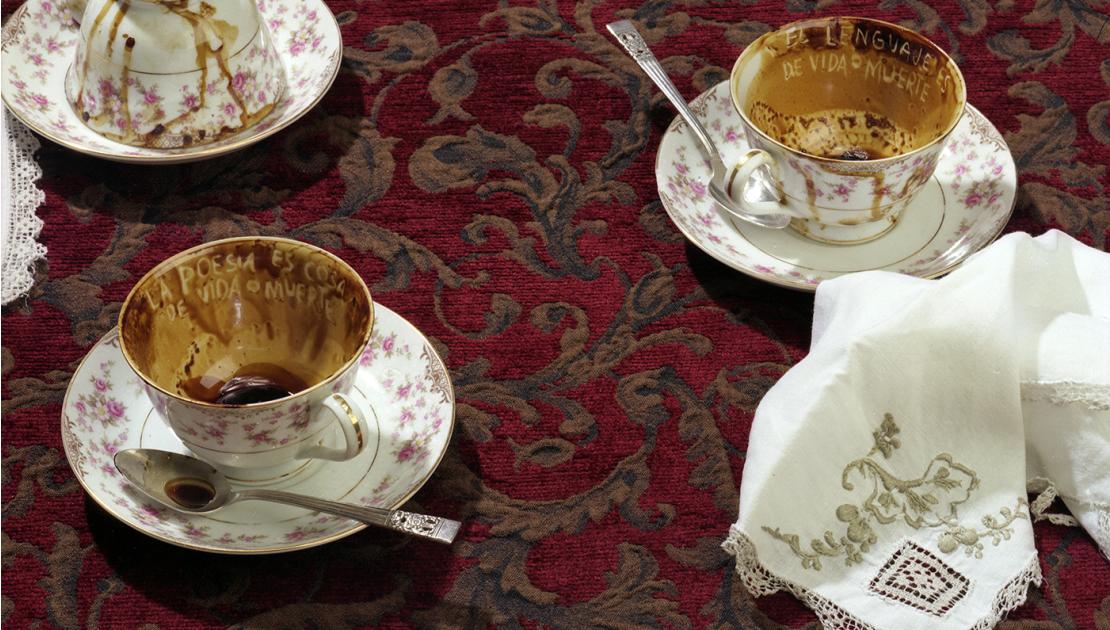Priscilla Monge’s work has often been included in the post-conceptual scene of Latin America in the nineteen-nineties, but it should be borne in mind that during that time neither Costa Rica nor the region of Central America to which it belongs featured on the maps of internationally renowned Latin American art.
Educated at the University of Costa Rica, where an educational structure tied to the systems of academic fine arts was predominant, and after a period of stay in Belgium, she returned to her native land where she would cultivate a forceful and though-provoking body of work with a tendency to reveal the systems of oppression, exclusion, discrimination and control present in everyday life; in short, everything that is usually neither spoken of nor acknowledged: insults, gestures, what makes us feel uncomfortable—ultimately, the persistence of archaic and unjust ways in a world that is modern in appearance only. In that respect, her works are pioneering in many ways, and not just in Central America, where her influence was decisive at the end of the nineties, witness to a radical transformation of the artistic scenario in parallel with the consolidation of the peace treaty, ending decades of conflicts in the region’s different countries. In her work during those years she tackled subjects such as marital rape and sexual abuse, the normalisation of menstruation, mistreatment or femicide, which at the time was not legally defined.
However, her works are not manifestos, or research papers, and lesser still journalistic sensationalism. Hers is quiet creation, often ironic and sometimes humorous, making the most of the paradoxical and with clever and subtle effects, enabling us to reflect in silence.
On a more visible level, there appears a confrontation between the public and private spheres of both individual lives and society as a whole, as scenarios that are connected vessels in a permanent state of tension. Through such diverse and forceful media and language as textiles and embroidery, painting and sculpture, understood to be a collage of objects found or their manipulation with the aim of varying their meaning and sense, neon lights, drawings, videos, photographs and texts, Priscilla Monge builds scenes and situations that confront the real space of everyday life and its social and psychological interpretation.
She took part in the Havana Biennial (1997, curated by Llilian Llanes), the São Paulo Biennial (1998, curated by Paulo Herkenhoff), the Venice Biennial (2001, in the official section curated by Robert Storr, and in 2013, representing Costa Rica), the Limerick Biennial (2003, curated by Virginia Pérez-Ratton), the Seville Biennial (2004, curated by Harald Szemann), the Liverpool Biennial (2006), or the Pontevedra Biennial (2010). Her work was also included in the exhibition Pervirtiendo el minimalismo (Perverting Minimalism) in Madrid’s Reina Sofia National Art Centre Museum, curated by Gerardo Mosquera and coinciding with a cycle of exhibitions on Latin American art directed by M.ª Carmen Ramírez. At the CGAC, she has taken part in the Camiños III (Paths III) exhibition with a work focusing publicly on the problems surrounding menstruation, and in Traballo en equipo (Teamwork), in the City of Culture’s Gaiás Museum, with a video from 1999 belonging to the CGAC collection on the problems surrounding domestic abuse.
Her works lie somewhere between the meaningful dimensions of the verbal and the visual of signs and representations. As she herself said: ‘They are found in a fractal space, that space between the word and image and vice versa. This is the extreme where art generates a safe space, of spiritual quest and probably change.’
The exhibition brings together works from all of her different stages, stressing those which have a special social significance, inviting us to look at her work as anticipating and influencing the female preoccupations in everyday life that prevail today.

